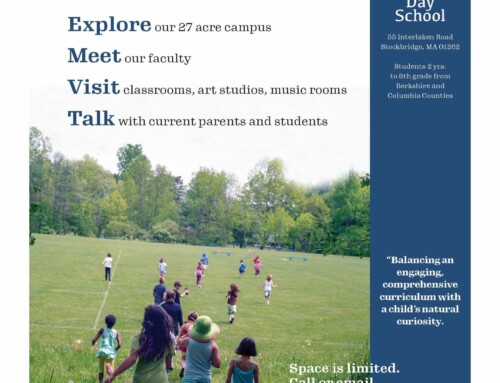I continue to be pleased with the progress we have made on accomplishing our goals as presented in our strategic plan. Our programs are strong and developing. The faculty is doing an excellent job and invested in our students, the programs, and their growth. Our wonderful students are happy, engaged, contributing, and flourishing. We have successfully balanced the budget for the third year. We ended 2010-2011 fiscal year with a cash excess, and we created a new operating reserve fund. Our endowment has grown 54%, following the prior year when it grew 25%. The Master Facilities Plan was completed and acts as a blueprint for the stewardship of our campus and focused lens for the Board and fundraising initiatives. None of this would have been possible without the hard work of every BCD employee and dedicated trustees.
At the front and center of all of our successes is the stewardship of our Board and their contributions of time, talent, and treasure. As we collectively focus on the future of our beloved BCD, and navigate the year(s) ahead, it will be essential that we continue to demonstrate leadership in these many ways. As you know, a strong Annual Fund is critical to our ability to achieve our mission, to support our faculty and programs, and to achieve our financial goals each year. I am proud of our Board’s participation in recent years. I look forward to joining with them as we demonstrate to the entire BCD community and all BCD constituency groups our commitment to the Annual Fund this year.
Advisor and Social Skills Programs: Fueling my excitement for the approaching school year this summer was hearing reports from Associate Heads of School Carmen Dockery Perkins, Paul Frantz, and members of the faculty about their plans to advance our advisor program in grades 4-9 and to expand the social skills programs in preschool-3rd grade. Two faculty groups met over the summer to accomplish this special work. Framed by our core values as a school and the desire to forge a common language between students and teachers, this work is extremely important to the successful accomplishment of our mission and philosophy as a school. Thanks go to Carmen and Paul for their leadership and to the faculty for their collective commitment to improving our programs and school culture.
Carmen’s recent blog post presented an excellent summary of her work with her faculty. In addition, the role of an advisor is clearly explained to emphasize each student’s academic, social, and emotional growth. Please look for more information at .
Kindergarten teacher Andrea Patel wrote the following about the work to expand the social skills program in preschool-3rd grade. “Drawing on resources such as the Responsive Classroom Approach and the Quit It! Program which addresses issues of teasing and bullying, we developed a comprehensive social curriculum for PreK-3rd Grade. It includes topics such as rules, self-discipline, respect, honesty, bullying and teasing, making good choices, generosity, diversity, and friendship. We will be implementing this curriculum in each classroom through weekly lessons, books, discussions and projects, and we will also come together as a larger school community to discuss these issues, explore related topics, and celebrate our similarities and differences!”
Development
: The 10/11 Annual Fund closed at almost $198,000 this year, up from over $180,000 last year. Parent giving increased 13%, and Board giving increased 21%. Of special note is the fact that faculty participation increased to 70%, up from 61% last year. I would like to especially thank Development Committee Chairs Paige Orloff and Laurie Schiff and Annual Fund Chairs Hilary Ferrone and Marianna Poutasse for their leadership, commitment, inspiration, and hard work last year.
New Director of Development Amy Elmore arrived in July. She is a doing a fabulous job getting to know more about BCD and meeting people while attending to important summer projects and shaping her vision for leading us in development initiatives. In addition to focusing her sights on the Annual Report, the Annual Fund, High Spirits, ArtSoirée, and other areas, Amy has begun the initial planning for a campaign, to include educating the Development Committee and the full Board sometime this fall. With a broad set of needs now identified by the Finance Committee, and others identified within the Master Facilities Plan, we will need to prioritize these areas and develop a case for their support while assessing our readiness to embark on a campaign.
Facilities: We completed the Master Facilities Plan last spring. This plan is the result of a year-long process that was skillfully overseen by the Buildings and Grounds Committee. Executive summaries were distributed to trustees during Centerbrook Architects’ presentation last April. Building and Grounds Committee co-chairs Eric Wilska and Mark Smith put in a great amount of time this summer editing the full MFP document. No changes have been made to the plan as presented to the Board, however many editorial and layout issues were corrected. I extend a sincere thanks to Eric and Mark (this year’s co-chairs of B&G) for their work and time through the spring and summer putting the final (time consuming) effort into edits and wording.
Faculty: Faculty were in and out all summer long planning for the year ahead, meeting with administrators, reading admissions files, and investing in their professional growth. Some highlights of the work completed this summer includes: Sarah Pitcher-Hoffman attended a week long Gilder Lehrman seminar on Colonial America. Taught by Dr. John Demos at Yale University, teachers from across the country reviewed primary source documents from the extensive collection of material at Yale University and toured various colonial sites with from experts in the field. Jilly Lederman continued to pursue coursework for two MA licenses (K-6 Elementary and K-8 Special Ed) by taking “Working with A Range of Students in Mathematics” through the Hampshire Educational Collaborative. For six weeks this summer, Alexis Watts taught literature and written expression to students ranging from fifth through seventh grade at Wolfeboro Camp School in Wolfeboro, New Hampshire. Kathy Clausen and Susan Frantz attended a two day workshop at Harvard University called “Using Technology in the Elementary School Classroom.” John Evans spent two days in June being trained in the Olweus bullying prevention system. Much of the focus was on developing positive school culture rather than getting mired in “bullying” as the core issue. Maria Whalen returned to Quebec City at University Laval for seven weeks. Fully immersed in French language studies, she completed six hours of Phonetics, Grammar and Oral Conversation at a Superior level. An incredibly rich experience professionally and personally, Maria was able to connect with other French teachers from around the world. Carmen Dockery Perkins, Marilyn Cromwell, Maria Whalen, Jeff Uhas, Sarah Pitcher-Hoffman, and Gail Heady received stipends to work on reviewing and establishing a new plan for the advisor program in grades 4-9. Andrea Patel, Ellie Atwater, Kathy Clausen, and Gill Romano received stipends to work on establishing a core framework and common language for expanding the social skills curriculum in preschool through third grade. Gill Romano extended this work and created a social curriculum to use with her third grade students. She reviewed the current “Quit It” curriculum and researched additional lessons to help further enhance and make a more complete program for her class. She published a document that outlines the various topics, subtopics, lessons, and resources that will be used this year in third grade. Maureen Tumenas described that most of her work this summer involved connecting with other educators and talking about what works for them at their schools and what new things they are trying out at various “unconferences”. Unconferences are organized by educators and provide an environment that encourages participant-driven discussions in an informal setting. Maureen attended edcampBoston, an “unconference-style” professional development day. She attended the Constructivist Consortium in Philadelphia, joining other participants in using various creative software programs, and she attended part of edubloggercon, also in Philly, another unconference, organized and run by attendees from across the world. She attended TEDxPhilly and spent three days at various workshops and sessions at ISTE. She attended edubloggger-coneast in Boston, an unconference run in association with the BLC conference, and she also attended edcampCT at The Ethel Walker School in CT- another unconference. Ned Douglas again immersed himself reading books about 20th century history. In addition, he consulted with a professor at Rockefeller University about research related to stress and diet and the impact on the brain. Susan Benner invested time this summer exploring the Ipad and science apps to explore ways to incorporate it into her teaching. Marilyn Cromwell attended a NAEA (National Art Education Association) conference in Washington, DC. The focus was on renewal, connecting with peers, and examining best practices for teaching art with an emphasis on the ways that museums are currently working to connect with students. Susan Frantz went on a mission trip to Ghana to work with maternally orphaned infants and children. And looking ahead, Eugenie Fawcett will audit Professor Keitel’s Caesar course at U. Mass. Amherst this fall. Caesar’s Commentaries are the primary prose readings that Eugenie teaches in the 9th grade and which have become the basis of the new AP prose course.
NEASC: As you know, BCD is accredited by the New England Association of Schools and Colleges. The full accreditation review process occurs every ten years, and BCD is scheduled to conclude this extensive process during a campus visit by an accreditation team during the spring of 2013. This is a wonderful opportunity for the school to evaluate its programs and policies while setting goals for future improvement. In addition, we will assess ourselves against an rigorous series of standards to ensure that we are implementing best practices in every area.
Technology: To ensure that our students are technologically literate and able to utilize search resources available on the web, Maureen Tumenas will be introducing a new component of our technology curriculum this year. As is the case with writing and research skills using non-web sources, it will require that appropriate faculty members share a core understanding and help teach the new standards to our students.
Maureen writes, “Essentially the ability to find reliable, credible information is a skill that everyone- students and faculty- need to develop as we are being barraged with a constant flood of information. According to the research, students at all levels – from elementary through college age – do not possess the research skills that we need in today’s information-saturated society. From pre-planning the research, through conducting good web searches all the way to synthesis of their sources- this series of tutorials will benefit the entire community. They are aligned to the common core standards, as well as the ISTE, ALA, NCTE and IRA standards.


Wow! I am incredibly impressed with the goals BCD has reached and exceeded. Hats off to the faculty—and to BCD for its support—for continuing their education. So important.
Wow Faculty! Thank you all for going the extra mile ! BCD really is an incredible school because of all of you.